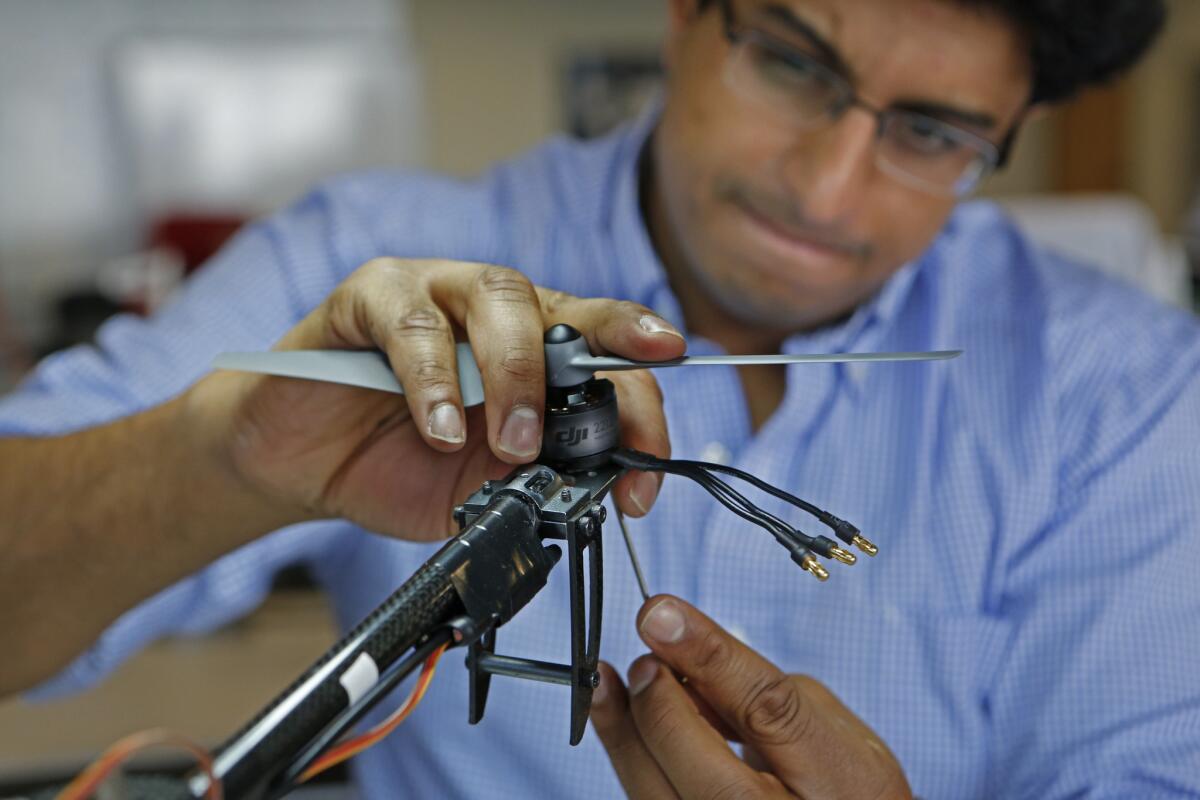USC start-up garage builds drones, wireless chargers, shopping apps

- Share via
USC’s metaphoric “start-up garage” is turning out some real businesses.
The program, in its second year, offers students and alumni a combination of money and guidance from the USC Viterbi School of Engineering.
Six of the 10 start-ups from the inaugural 2013 batch are faring well, according to the program. Here’s a look at the class of 2014, which put on a demonstration at a campus ballroom last week. Two of them have raised funds outside the school.
AwesomeSauce Labs. Developed a lightweight tri-copter drone that holds a GoPro camera to record video from the sky. The drone folds into a shoulder-strung satchel. A charge from lithium ion batteries, located in the arms of the drone, lasts about 30 minutes. Subjects are tracked via radio waves, not GPS. Raised $230,000 from investors and plans to begin sales next month via Kickstarter.com.
Bezalel. Has sold $750,000 worth of small battery boxes that wirelessly charge smartphones placed on top. Next project: Find a way to wirelessly charge devices with no need for a specific surface. In tests, wireless recharging works up to 28 inches. Raised $830,000 from investors.
Muko. Music streaming app plays songs that match a mood -- “music that makes me jump” for instance. Full-length tracks are available to Rdio streaming service subscribers. The information about a song’s characteristics is gleaned by analyzing reviews for 1 million songs on the online encyclopedia MusicBrainz.
Wauw. Testing a mobile app where shoppers ask friends whether they should buy an outfit they’re trying on. A timer lets recipients of dressing room selfies know how long they have to weigh in. RFID tags on clothing link products to conversations and give stores a potential way to see why people buy or don’t buy something they’ve tried.
NVDrones. Developing software for drones that would allow a programmer to write one app and have it instantly work on thousands of drones.
Ventata. Hundreds of online shopping websites, it says, are using its application to adjust prices based on supply and demand, and how quickly a vendor wants to unload an item.
Pixtasy. Creating an online shop for stock photography that is open to the public, featuring a custom visual search engine that helps customers find just the right shot.
Chat with me on Twitter @peard33







